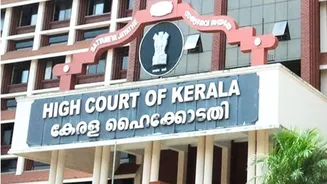What is SUC?
SUC, or Service and Utility Charges, is essentially a fee levied alongside your property tax to cover the costs of essential municipal services. These
services are crucial for maintaining the quality of life within a city or town. Think of it as a contribution towards the upkeep and operation of vital infrastructure and public amenities that benefit all residents. While property tax itself funds broader government functions, SUC specifically targets the maintenance and provision of local services.
Services SUC Covers
Your SUC payment contributes to a wide array of services that directly impact your daily life. These typically include water supply and sanitation services such as sewage management and garbage collection. SUC may also support street lighting, which enhances safety and security within your neighborhood. Additionally, it can fund the maintenance of public spaces like parks and gardens, ensuring these areas remain accessible and enjoyable. The specific services covered can vary slightly depending on the municipality, but the core focus remains on delivering essential utilities and maintaining public infrastructure for the collective good.
SUC vs. Property Tax
It is important to understand the relationship between SUC and property tax. While both are collected by the local government, their purposes differ. Property tax is a broader tax used to fund various municipal operations, including administrative costs, infrastructure development, and public services. SUC, on the other hand, is a more specific charge, dedicated to the upkeep and operation of utilities and local services. Often, SUC is included as a component within the overall property tax bill, making it easier for property owners to fulfill their obligations through a single payment. However, the amounts and allocations are tracked separately.
Calculating SUC Amount
The method of calculating the SUC amount can differ among various municipalities across India. However, the calculation often considers several factors. These frequently include the size of your property, typically measured in square feet or meters, and its location, which can influence the cost of providing services. Some municipalities might also factor in the type of property, such as residential or commercial, which impacts the usage of utilities. In some cases, a flat rate might be applied based on property classification. Property owners should consult their local municipal guidelines for precise details about how SUC is assessed in their area.
Benefits of SUC
A well-funded SUC system translates into several direct benefits for property owners and the wider community. These include improved infrastructure, such as reliable water supply and efficient waste management systems. Regular street cleaning and proper sewage disposal contribute to a healthier environment. Well-maintained public spaces, like parks, offer recreational opportunities, improving quality of life. Ultimately, SUC helps create a livable and sustainable urban environment where residents can enjoy enhanced services and infrastructure, thus contributing to the value of their properties.
Paying Your SUC
Paying SUC usually involves the same methods as paying your property tax. Most municipalities offer online payment portals, allowing you to settle your dues from the comfort of your home using methods like net banking, credit cards, or debit cards. You might also find offline options, like visiting your local municipal office or designated collection centers. Remember to keep your property details handy, such as your property ID or assessment number, for making payments. Always retain receipts and payment confirmations for future reference. Always check your local municipality's official website for accurate payment instructions and avoid relying on unofficial sources.
SUC in Property Tax
Typically, SUC is integrated into your overall property tax bill. When you receive your bill, you will likely see a breakdown of the various charges, including the property tax, and SUC. This means you make a single payment that covers all the dues. The combined bill simplifies the process, making it easier for property owners to fulfill their obligations. For any questions related to the bill, contact your local municipal office or check the municipality's official website for clarification.














